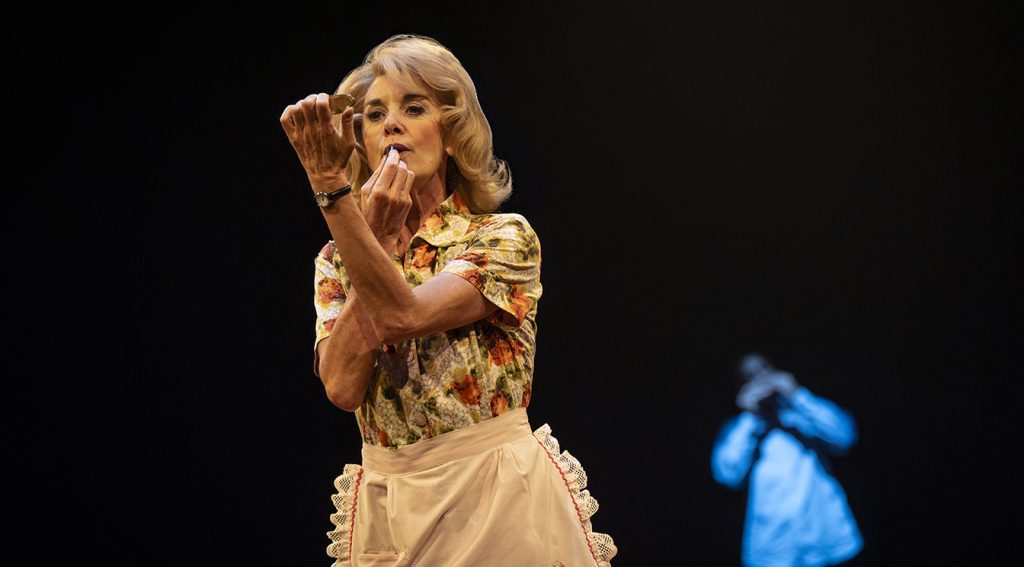Revivals of Joe Orton’s plays arrive with concerns. The playwright’s reputation for outrageousness brings baggage. It’s to the credit of director Nadia Fall that this 1963 play is still shocking. It’s a shame that it isn’t as funny as it might be.
Fall tries hard to revel in the extreme and experimental aspects of the text, but the effort is limited because a lot of the humour is neglected. The dialogue isn’t odd just because of its time of writing – the mannered expression and convulsions reflect hypocrisy and twisted desires. Designer Peter McKintosh mirrors this with bric-a-brac, all painted black, suspended above the action like a Cornelia Parker installation. Meanwhile, lighting from Richard Howell includes bold colours and strobes to anachronistically split up scenes. It’s all a risk, as arty touches might alienate some from the play. And Entertaining Mr Sloane – with murder, misogyny and abuse at its core – is fairly hard to get your head around anyway.

It isn’t an easy play for the cast either. Orton’s characters are forcefully flat. Motives are transparent, not just for comedy, but to show the audience that everyone here is delusional. But the performances are good. The least successfully written is a father figure, Kemp, capably played by Christopher Fairbank, who manages to inject a good deal of fear into the piece. But the role is too clearly a foil for the other power plays going on. Here, Daniel Cerqueira’s deadpan delivery as Ed gets a little monotonous, though the character is suitably chilling and repressed. Tamsin Outhwaite is a revelation as the sexually frustrated Kath, a woman you might feel sorry for, who Outhwaite makes truly grotesque thereby coming closest to Orton’s humour. As the object of both their affection, the titular lead, Jordan Stephens, has no problem with the charisma his character is said to possess. But Sloane is poorly served by Fall – he is never allowed to be quite threatening or funny enough. There’s a lack of subtlety to moments where the character thinks he has the upper hand because, here, Sloane is never in charge.
There’s a lot of lying. Deceit is often clear, even brazen, as characters are lying to themselves as much as each other. Is this the play’s attraction in 2025? Orton’s world as post-truth! And note, these lies excuse murder and assaults driven by lust and power. We’re a long way from a sex comedy and Fall’s move towards the serious sacrifices a lot. By the end, Sloane is literally tied up by Ed and Kath, as he is to be ‘shared’, so it isn’t subtle. Perhaps the focus is youth and how power held by an older generation is used to exploit? It adds to a creepy feel and gives this already robust play a shot in the arm.
Until 8 November 2025
Photo by Ellie Kurttz

